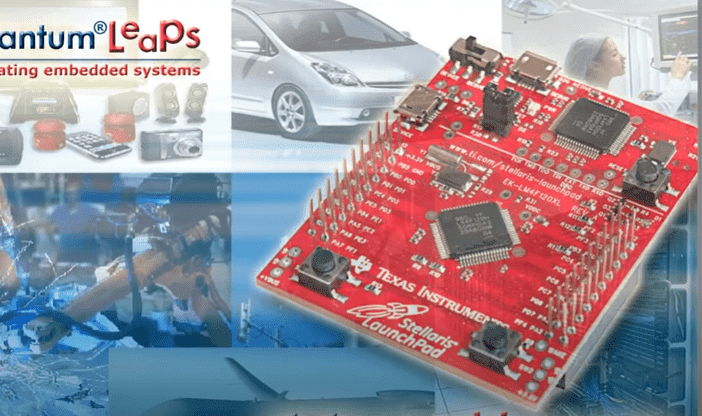
About Course
Learn Embedded Microcontrollers Systems (MCUs) Programming
I believe that anyone can learn and experiment with technology.
All that is needed is the desire to learn and the right guidance. That’s the reason this course is focused on both
- absolute beginners and
- intermediate developers in embedded systems.
We’re going to study embedded systems with 8051 microcontrollers in this course.
8051 is by far one of the oldest microcontrollers which are still used today. With over 70+ different manufacturers, 8051 is available in a variety of flavours. What makes it special is the simplicity it offers to the programmers and developers. Being one of the first microcontrollers, the architecture of 8051 is quite simple, with very few basic features. And those very basic features make 8051 the winner in terms of simplicity in usage.
In this course, we’ll study 8051 with embedded C programming. We’re going to study the 8051 microcontrollers with Keil 8051 IDE. Keil Microvision is a very old and very popular IDE used for microcontroller programming.
Who this Embedded Microcontrollers Systems course is for:
- Beginner, Students who are curious to learn Microcontroller Programming
- College and University students
- Working Professionals willing to start studying embedded systems
Course Content
Introduction to Embedded Microcontrollers Systems (MCUs) Programming
-
Embedded Systems Programming Lesson 0: Getting Started
00:00 -
Embedded Programming Lesson 18: interrupts part-3
00:00 -
Embedded Programming Lesson 19: GNU-ARM and Eclipse
00:00 -
Embedded Programming Lesson 20: Race Conditions
00:00 -
Embedded Programming Lesson 21: Foreground/Background
00:00 -
Embedded Programming Lesson 22: RTOS part-1
00:00 -
Embedded Programming Lesson 23: RTOS part-2
00:00 -
Embedded Programming Lesson 24: RTOS part-3
00:00 -
Embedded Programming Lesson 25: RTOS part-4
00:00 -
Embedded Programming Lesson 26: RTOS part-5
00:00 -
Embedded Programming Lesson 27: RTOS part-6
00:00 -
Embedded Programming Lesson 28: RTOS part-7
00:00 -
Embedded Programming Lesson 29: OOP-part1-Encapsulation
00:00 -
Embedded Programming Lesson 30: OOP-part2-Inheritance
00:00 -
Embedded Programming Lesson 31: OOP-part3: Polymorphism in C++
00:00 -
Embedded Programming Lesson 32: OOP-part4: Polymorphism in C
00:00 -
Embedded Programming Lesson 17: interrupts part-2
00:00 -
Embedded Programming Lesson 16: interrupts part-1
00:00 -
Embedded Systems Programming Lesson 1: Counting
00:00 -
Embedded Systems Programming Lesson 2: Flow of Control
00:00 -
Embedded Systems Programming Lesson 3: Variables and Pointers
00:00 -
Embedded Systems Programming Lesson 4: Blinking the LED
00:00 -
Embedded Systems Programming Lesson 5: Preprocessor and volatile
00:00 -
Embedded Systems Programming Lesson 6: Bit-wise operators in C
00:00 -
Embedded Systems Programming Lesson 7: Arrays and Pointer Arithmetic
00:00 -
Embedded Programming Lesson 8: Functions and the Stack
00:00 -
Embedded Programming Lesson 9: Modules, Recursion, AAPCS
00:00 -
Embedded Programming: Lesson 10: Stack Overflow and Other Pitfalls of Functions
00:00 -
Embedded Programming Lesson11: stdint.h and mixing types
00:00 -
Embedded Programming Lesson12: structures and CMSIS
00:00 -
Embedded Programming Lesson13: startup code part-1
00:00 -
Embedded Programming Lesson14: startup code part-2
00:00 -
Embedded Programming Lesson 15: startup code part-3
00:00 -
Embedded Programming Lesson 33: Event-Driven Programming part-1
00:00
Student Ratings & Reviews

